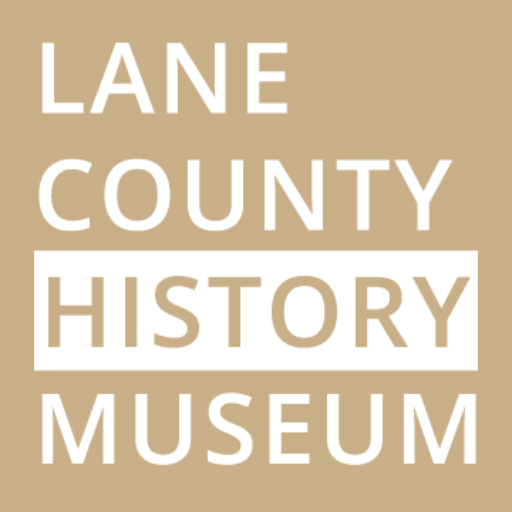Thank you for considering a donation to the Lane County History Museum. We do not purchase items and it is only because of the generosity of people like you that our collections continue to expand and diversify. This page provides information to prospective donors about our processes for acquiring new material into our collections, including Artifacts, Archival, Library, and Born-Digital materials. Please do not send or drop off the materials you wish to donate until you have followed the following procedures and been in contact with a museum representative.
Lane County History Museum’s Acquisitions Committee meets as needed over the course of the year. Please be patient as we work through the review process. Donations that do not go through one of the processes outlined here or that we can not legally take ownership of will be considered abandoned property. The Museum reserves the right to dispose of it in accordance with its policies.
Lane County History Museum is currently accepting donation proposals in the following areas:
General Collecting
- Includes Artifacts, Archives, Library, and Born-Digital materials to be accessioned into the permanent collection of the Lane County History Museum.
Special Collecting Campaigns – follow the links for additional details and instructions.
Share Your Story Project

- Specifically for digital-born materials, this project seeks stories and experiences from residents of Lane County starting in 2020. These materials will not be accessioned into the permanent collection, but become part of a community-built collection. Donors agree to a creative commons license that allows the public free reuse of materials with attribution to its creator.
Frequently Asked Questions
- How do I donate materials to the LCHM collection?
- Does LCHM purchase items to be added to our collection?
- Can I mail or drop off a donation?
- What criteria are used to review proposed donations?
- If accepted, will my donation be exhibited to the public?
- Could my donation be sold, discarded, given away or loaned?
- How does LCHM address equity and inclusion in their collecting?
PROPOSE A DONATION
- How do I donate materials to the LCHM collection?
If you have physical or digital materials that you would like to be considered for addition to the Lane County History Museum’s collection, please contact us using our paper or online Acquisition Review Form.
For consideration, material must:
- Be in line with the Museum mission and have a connection to Lane County, Oregon.
- Be in a reasonably good state of preservation.
- Can be provided proper care, conservation, storage, and security under conditions ensuring their preservation and availability, in keeping with professional standards.
- Are legally owned by the person submitting the proposal, and have the ability to transfer legal ownership as an unrestricted gift to Lane County History Museum.
For Special Collection Campaigns:
If you would like to propose a donation to one of the Special Collection Campaigns listed above, visit these pages for specific instructions.
- Does LCHM purchase items to add to their collection?
No. The Museum does not have a budget to purchase historical artifacts and archival materials. The Museum would not exist without the generous and thoughtful gifts of donors over the years.
- Can I mail or drop off a donation?
LCHM will accept mailed or in-person donations only after the donor has gone through the acquisitions process, and a transfer of property has been arranged.
Do not bring potential donations to the museum that have not yet been accepted.
- What criteria are used to review a proposed donation?
There are many factors when considering a new donation. A donation to a museum is assessed for how well it fits within the museum’s Mission and collection policies. An accepted donation then requires a legal transfer of ownership, resulting in adding your donation to our permanent collection. Once a donation is added to our permanent collection, it becomes LCHM’s responsibility to care for it in perpetuity, so we also have to think about whether we have the space and ability to care for your donation using best practices within the field.
- If accepted will my donation be exhibited to the public?
All donations to Lane County History Museum’s collections are unrestricted gifts, with no conditions attached, and to be used in any manner in which the Lane County History Museum deems appropriate. Whether or not a donation is exhibited is at the discretion of LCHM staff, generally the Curator.
- Could my donation be sold, discarded, given away or loaned?
When an item in the collection is considered for deaccessioning, meaning removing it from our collection, there is a process that must be followed that involves both LCHM and the government of Lane County. For more details on deaccessioning see our Deaccession Policy.
On rare occasions other institutions will request to loan items from our collection to put on exhibit. Decisions on loaning materials are made based on the conditions it will be exhibited in, length of loan request, cost associated with loaning, and condition of the artifact.
- How does LCHM address diversity, equity and inclusion in their collecting?
Lane County History Museum recognizes the history of oppression through omission that has been perpetuated against the diverse peoples of our community. Our collections and archives were built on exclusionary practices that do not reflect our current principles about diversity. Lane County History Museum is committed to uncovering local history that confronts internal biases and includes what is absent in order to expand our understanding of Lane County’s past.
